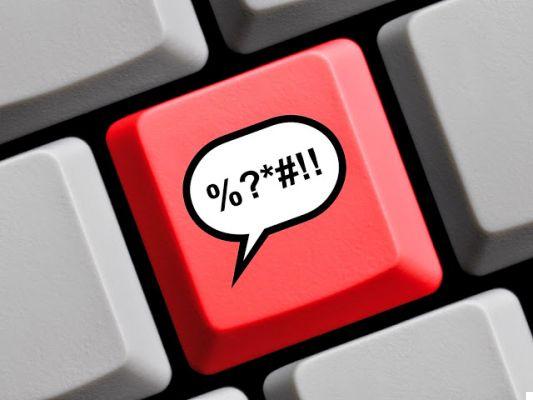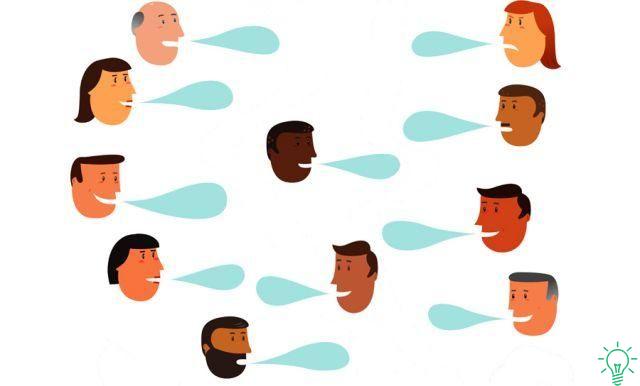
Last year closed by issuing a clear warning against comments posted in blogs, online newspapers and websites: the responsibility of these lies with the site owner. Indeed, the European Court of Human Rights condemned a Slovakian newspaper stating that it was responsible for any comments that were published on its website.
Long before I knew this ruling, I had already applied moderation in the comments on my blog (original version in Spanish). The reason is simple: when you have thousands of visitors a day, it's impossible to control everything people write. At first
everyone could post their comments anonymously and without any moderation but, unfortunately, since many started showing disrespectful behavior it became necessary to put up a stake.
Obviously, I wasn't the only one doing this. Popular Science magazine recently announced plans to remove comments from its website. Publishers said Internet comments, particularly anonymous comments, undermined the integrity of the scientific journal by bordering on mockery and aggression. So now, they have decided to keep in touch with their readers only through social networks.
Nasty online comments lead to extreme positions
A very interesting study conducted at the University of Wisconsin-Madison showed that it doesn't really matter if comments are anonymous or not, people react the same way in front of them. Like?
These researchers coined the term "Nasty Effect" to refer to the fact that disrespectful comments stimulate us to react in a rude way and, as a result, the conversation is likely to degenerate into confrontation, and what should be a respectful exchange of different opinions turns into a battlefield full of expletives.
Furthermore, after people read a few uncivilized comments, the likelihood that they themselves will take extreme positions with respect to the article also increases, a phenomenon that is not only about the Internet, but that is certainly maximized thanks to the feeling of anonymity that the network offers.
The researchers organized a very interesting experiment in which 2.338 people participated. The topic in question was nanotechnologies and before they read the blog in question, they had to answer a series of questionnaires designed to assess their degree of knowledge of the subject and related sectors. Afterward, people had to enter a blog dedicated to nanotechnology, read some articles and comment.
Interestingly, the researchers included some rather high-pitched comments in the posts beforehand, some joking or disrespectful. In this way it was possible to observe that when people did not have an in-depth knowledge of nanotechnologies and their beliefs were rather contrary or had reservations on the subject, the negative comments already present that used a less civil tone contributed to extreme their position, making them perceive this technology as a threat to be avoided at all costs. Conversely, when the comments were more civilized, people were more willing to accept nanotechnology or at least consider its positive aspects.
In essence, it happens that when people do not have sufficient knowledge to counter the reviews they are reading, they allow themselves to be influenced by extreme positions, especially if they identify with them. In this way, when a different approach is taken, the tendency will be to defend it and, consequently, often a discussion will start that will go off the rails and will not focus on the specific topic, losing productivity.
The lack of civility affects the credibility of the message
As you can imagine, this was not the only study that analyzed the effect of reader comments. Another research conducted at the University of Singapore reveals that when comments are uncivilized, the credibility of the intended message also diminishes.
transmit.
This time the researchers recruited 153 people who were to enter online political forums and read comments. Obviously some of these comments had been manipulated in advance to make them appear rude and disrespectful. This time the topic was a dispute over the territorial waters between Singapore and Malaysia, and various arguments of a political nature were presented in this regard.
Thus it was found that in the face of non-civilized comments, people perceived the arguments of the article negatively, considering it more aggressive, intimidating and unreliable. Therefore, the researchers believe that, at least in the political sphere, allowing this kind of negative comments takes away the credibility of the message it is intended to convey.
While we can't extrapolate these results to all areas of knowledge, the truth is that walking into a site where people attack each other doesn't make a good impression. Where are the limits?
Obviously, at this point a question is inevitable: what is the limit in moderation of comments? The answer should be about the kind of website you run and, above all, the attitudes you are willing to accept. Always remember that when it comes to your site, the responsibility is yours and you set the rules.

























